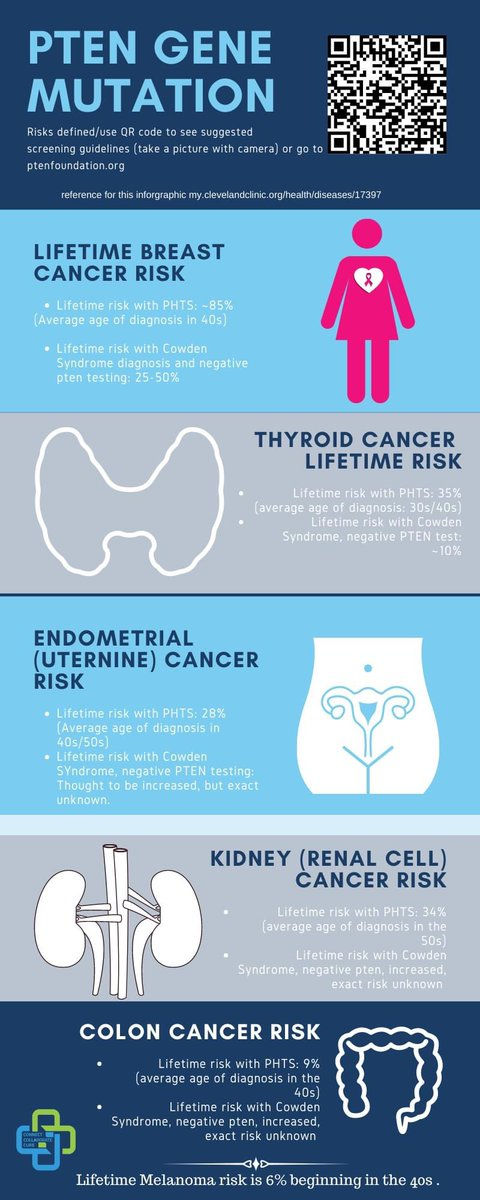What is Cowden Syndrome? Day 6 Hereditary Cancer Awareness Week
- CGA-IGC
- Sep 30, 2022
- 2 min read
Courtesy of PTEN Hamartoma Tumor Syndrome Foundation

Cowden Syndrome is a genetic condition associated with a spectrum of findings that includes skin growths called trichilemmomas and papillomatous papules, growths/papules on the tongue and lips, and and an increased risk for a number of cancers including breast, thyroid, uterine, colon and kidney.
A key feature of Cowden syndrome is colon polyps, which are present in 90% of individuals. Although many individuals have a mixed polyposis, where they have more than one type of colon polyp, hamartomas are the most common polyp and are considered one of the hallmark features of Cowden syndrome. Many individuals with Cowden syndrome also have a large head (macrocephaly). Autism and developmental delay may also be present in some families. Given that Cowden syndrome affects various tissues and increases the risk for multiple types of cancer, screening and surveillance includes a multidisciplinary approach. While the incidence of Cowden syndrome is reported as 1/200,000, many believe that the condition is underdiagnosed and this number is an underestimate. Cowden syndrome is technically a clinical diagnosis, whereby an individual meets criteria based on their features as opposed to a positive genetic test. The main gene linked to Cowden syndrome is PTEN, and when genetic testing reveals a mutation in the PTEN gene, the individual is now said to have PTEN Hamartoma Tumor Syndrome (PHTS). It is estimated that approximately 34% of individuals who meet criteria for Cowden syndrome will be found to have a PTEN mutation, although this number varies significantly among studies . While some individuals with Cowden syndrome (10-50%) have an affected parent, at least half may have the condition as the result of a new genetic mutation in them.
Thus, while family history can be important in identifying certain hereditary conditions, careful attention should be paid to the various features of Cowden syndrome, as a significant number of individuals may not have a positive family history. You can learn more about Cowden syndrome by browsing the links below:
PTEN Foundation: https://ptenfoundation.org/
FORCE (Facing Hereditary Cancer Empowered): https://www.facingourrisk.org/
PTEN Multidisciplinary Clinic: Center of Excellence: https://my.clevelandclinic.org/departments/genomics/specialties/pten-clinic/
InSiGHT: https://www.insight-group.org/
To find an inherited GI Cancer Genetics Clinic near you, check out the “Find a Clinic” page on the CGA-IGC website: https://www.cgaigc.com/find-a-clinic


Comentarios